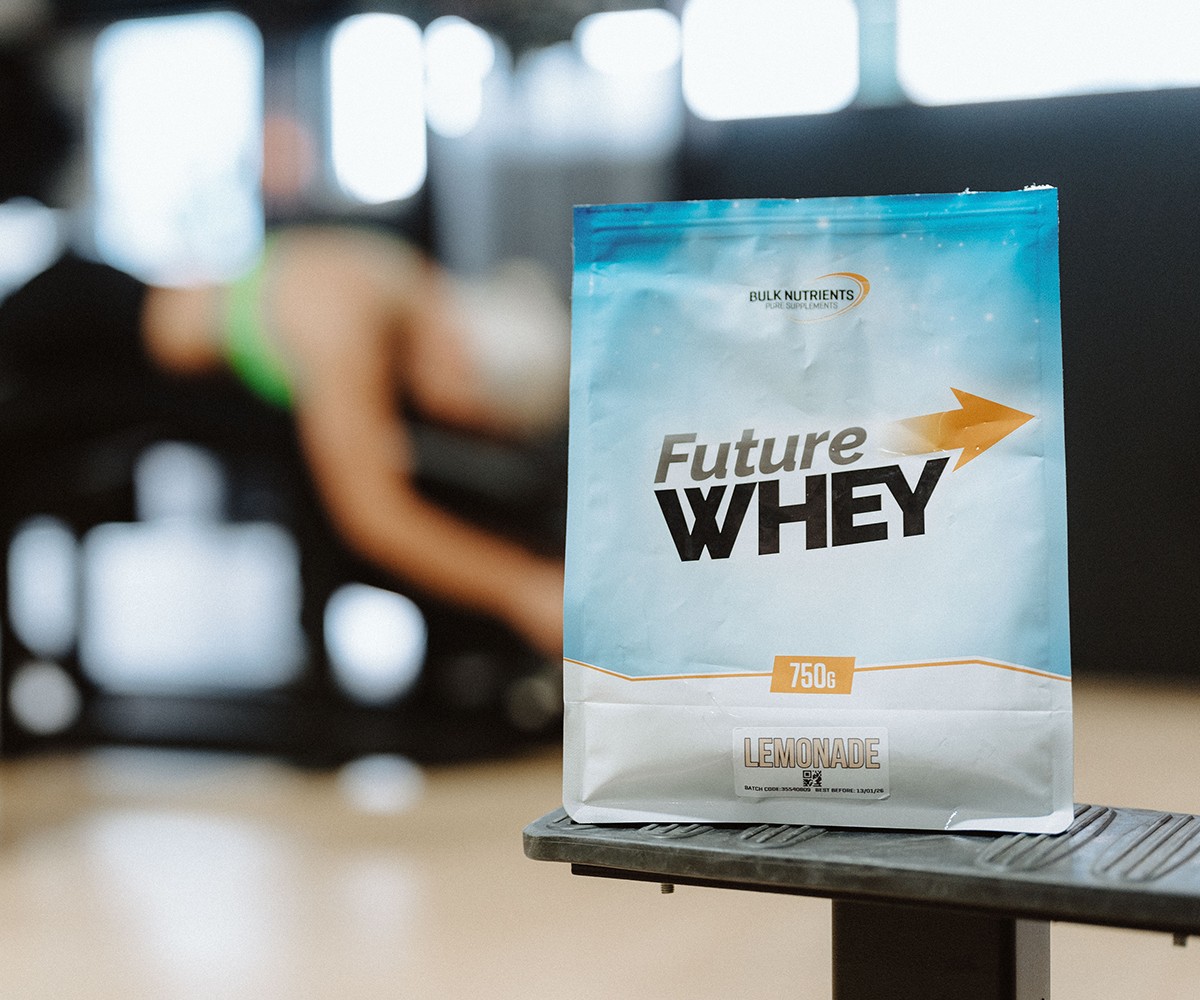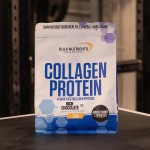Future Whey vs Collagen Protein

The rise of dairy free proteins
Dairy based proteins, especially whey proteins, have dominated the supplement space for a long time and continue to today.
But there’s been a notable increase in people opting for plant and collagen based proteins over whey. For some it’s due to an allergy or intolerance, for others it’s just a personal choice.
However there seems to be a shroud of mystery as to what the benefits are and how these products are made. Never fear, we have the answers you seek.
The contenders: Future Whey and Collagen Protein
If you aren’t too keen on pea or rice proteins and soy just isn’t your jam, Future Whey or Collagen Protein could be your next go to protein powder. But how do they differ?
How is Future Whey made?
Future Whey is a unique formula that combines free form amino acids.
These amino acids are manufactured (synthesised) individually in massive laboratories using complex processes of fermentation.
The result is a very pure amino acid which has virtually no contaminants and absolutely no carbohydrates or sugar.
The Future Whey formula utilises 15 individual amino acids in “free form” and combines them at levels proven to best support muscle growth, reduced soreness and recovery. And this amazing formula was uniquely developed by our R&D team!

How is Collagen Protein made?
Hydrolysed collagen peptides (which we call Collagen Protein at Bulk Nutrients) is very different to Future Whey.
Believe it or not, hydrolysed collagen is completely sourced from an animal, usually cattle (Bovine) but occasionally fish or chicken. The end result is a very pure high protein product that is also carbohydrate and fat-free.
In its finished state hydrolysed collagen contains an array of 18 amino acids which are “set”. All collagens from the same origin (ie Bovine) will have very similar amino acid spectrums as these are determined by the animal’s collagen structure. In this way, Collagen Protein is not “engineered” like a product such as Future Whey.
What does hydrolysation mean?
Hydrolysation is the process of breaking down the bonds of a substance. In the cases of food, water and acids are applied to effectively deconstruct the matter into its original building blocks. The end result is isolated compounds that are very pure in a chemical sense.
One of the key benefits of hydrolysation is that it aids digestion, meaning the body can absorb the product more quickly. Both Future Whey and Collagen Protein contain hydrolysed ingredients.

What are the main differences between Collagen Protein and Future Whey?
The first of course is their very different origins, collagen is sourced from animals and Future Whey from vegetable matter.
Their amino acid breakdowns are another point of difference. Collagen contains a combination of 18 amino acids, which includes eight of the nine essential amino acids – collagen has no Tryptophan.
Future Whey contains 15 amino acids, but more importantly, it contains all nine essential amino acids, which are traditionally considered the key amino acids for muscle growth.
Future Whey is very high in essential amino acids and Glutamine, with each serving containing more essential amino acids and branched-chain amino acids (BCAAs) than whey protein. Around 27% of Future Whey is BCAAs and 53% is pure essential amino acids (EAAs).
Hydrolysed collagen on the other hand is very high in Glycine (around 20%!) and contains a high proportion of “non-essential” amino acids like Proline and Alanine. Notably, only 7% of hydrolysed collagen is BCAAs and has around 16% EAAs.
Collagen also has high levels of Glutamic Acid (like Whey), however, Future Whey uses L Glutamine, which is much more commonly associated with improving performance and recovery. Glutamic Acid has little association with this, hence why it is rarely used in supplementation unless naturally occurring.
So despite both products being pure protein sources, what actually makes up the protein differs quite widely.

A different spread of amino acids
Future Whey has almost four times the level of BCAAs, three times the level of EAAs and most significantly almost five times the amount of Leucine than Hydrolysed Collagen. Leucine is widely known as being the key amino acid for muscle development
Collagen Protein makes up for this with very high levels of Proline, Alanine, Glutamic Acid and Hydroxyproline.
So, which protein is best?
Really, it comes down to your goals.
Collagen Protein is a very pure product however its low levels of both BCAAs and EAAs don’t make it a natural choice for muscle growth.
However, it does have amazing benefits for skin, cartilage and bone health. As a supplementary protein to whey, collagen would make a great choice as a second protein for these benefits.
If your prime focus is muscle growth and recovery, then the science supports larger amounts of BCAAs and EAAs which Future Whey provides in spades.
In terms of digestion, one is a free form product and the other is hydrolysed, so both are rapidly absorbed. This makes them ideal around training time on an empty stomach for maximising anabolism (muscle growth).
Future Whey is designed to be consumed before, during or after training; while Collagen Protein is rapidly absorbed it would be more logical to take it at another time of the day and reserve your training time for Future Whey or even whey protein.

Should I take proteins together or separately?
It depends!
Different varieties of proteins are used for different reasons to reap particular benefits, so usually mixing is not necessary.
The major benefit of the pure, more expensive proteins is that they’re rapidly absorbed. So adding a slow-release protein or milk actually negates the major benefit of the protein.
This is the case for Future Whey as its main drawcard is speedy absorption to support training and recovery. So combining it with whey or milk would not only taste a little funky but would really slow down absorption. We always recommend Future Whey is consumed separately in water, ideally around training time.
Blending is a time when Collagen Protein does offer an additional benefit. Although it is quickly absorbed like whey protein, collagen offers significantly different benefits to whey. Whether you take it alone or with whey protein, the benefits will still exist.
Two great protein powder choices
So whichever you choose to support your goal, both are very pure and effective dairy-free protein powders.
Future Whey can support your muscles best around training time, whereas Collagen Protein is best used as an additional protein to promote healthy hair, skin and skeletal systems.
To find out more about each, take a look at the Future Whey or Collagen Protein product pages or reach out to our friendly customer service team!

Ben Crowley, founder of Australia's top sports supplement brand, Bulk Nutrients, combines two decades of industry experience with a commitment to employee work-life balance and career growth.
A firm believer in quality, Ben founded Bulk Nutrients to provide affordable, high-quality products, even amid global challenges.
Apart from business, he enjoys family time, outdoor activities, and adrenaline-charged car projects.
More about Ben CrowleyRelated Blogs

The Ultimate Guide to Bulk Nutrients' Protein Water!
Posted by Ebony Abblitt
Estimated reading time: 6 minutes

Collagen Powder Benefits
Posted by Nick Telesca
Estimated reading time: 9 minutes

Bovine vs Marine Collagen
Posted by Nick Telesca
Estimated reading time: 8 minutes






























